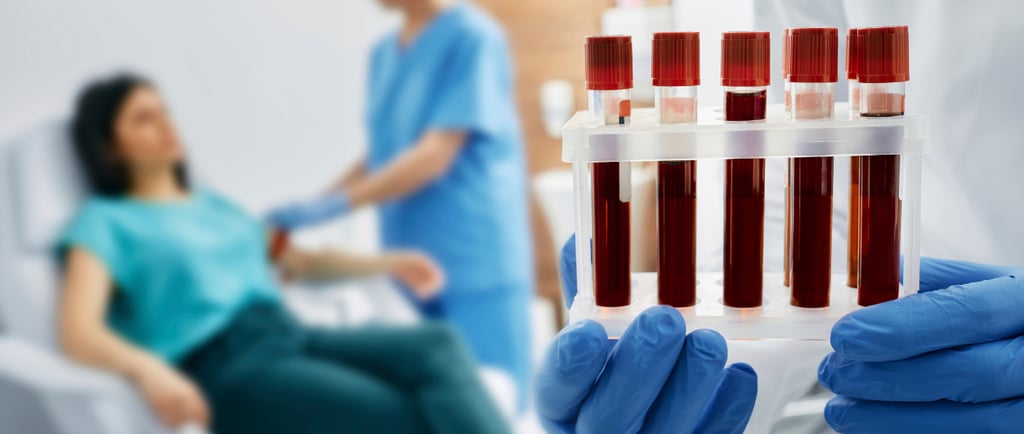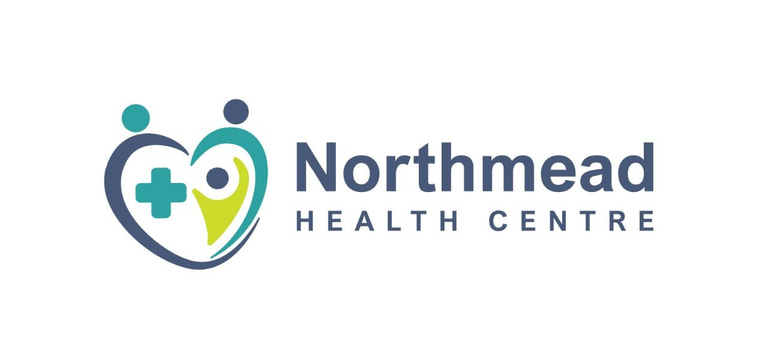Blood testing and its value
Blood testing is a common medical procedure that involves taking a small sample of blood from a vein in the arm.
10/21/20233 min read


Blood testing and its value: A guide
Blood testing is a common medical procedure that involves taking a small sample of blood from a vein in the arm. The blood sample is then sent to a laboratory for analysis. Blood tests can be used to diagnose a wide range of health conditions, including infections, anemia, cancer, and diabetes. They can also be used to monitor the effectiveness of certain medications and to track the progression of chronic diseases.
What does a blood test show?
Blood tests can measure a variety of different substances in the blood, including:
Blood cells: Red blood cells carry oxygen throughout the body, white blood cells fight infection, and platelets help blood clot.
Electrolytes: Electrolytes are minerals that help regulate the body's fluid balance and nerve and muscle function.
Proteins: Proteins are essential for building and repairing tissues, and they also play a role in the immune system and other bodily functions.
Hormones: Hormones are chemical messengers that regulate a wide range of bodily functions, including growth, development, metabolism, and reproduction.
Enzymes: Enzymes are proteins that speed up chemical reactions in the body.
Vitamins and minerals: Vitamins and minerals are essential nutrients that the body needs to function properly.
Why is blood testing important?
Blood testing is an important tool for diagnosing and monitoring a wide range of health conditions. It can help doctors to:
Diagnose infections: Blood tests can be used to diagnose a variety of infections, including bacterial infections, viral infections, and fungal infections.
Identify anemia: Anemia is a condition in which the blood does not have enough healthy red blood cells. Blood tests can be used to diagnose anemia and to determine the type of anemia.
Detect cancer: Blood tests can be used to detect certain types of cancer, such as leukemia and lymphoma.
Diagnose diabetes: Diabetes is a condition in which the blood sugar level is too high. Blood tests can be used to diagnose diabetes and to monitor blood sugar levels.
Monitor the effectiveness of medications: Blood tests can be used to monitor the effectiveness of certain medications, such as blood thinners and chemotherapy drugs.
Track the progression of chronic diseases: Blood tests can be used to track the progression of chronic diseases, such as kidney disease and liver disease.
When should you have a blood test?
Your doctor may recommend blood tests as part of a routine physical examination, or they may order blood tests if you are experiencing certain symptoms. For example, if you are experiencing fatigue, shortness of breath, or pale skin, your doctor may order a blood test to check for anemia. If you are experiencing frequent urination, increased thirst, and unexplained weight loss, your doctor may order a blood test to check for diabetes.
What to expect during a blood test
A blood test is a relatively simple procedure. A healthcare professional will clean your arm with an antiseptic solution and then insert a small needle into a vein. Once the needle is in place, a small amount of blood will be drawn into a vial. The needle will then be removed, and your arm will be bandaged.
After a blood test
You may experience some minor discomfort, such as soreness or bruising, at the injection site. However, these symptoms should resolve within a few days. If you experience any other symptoms, such as fever, redness, or swelling at the injection site, contact your doctor.
Visit Northmead Health Centre for your blood testing needs
At Northmead Health Centre, we offer a wide range of blood tests, including routine blood tests, specialized tests, and allergy tests. Our team of experienced and qualified healthcare professionals will ensure that your blood test is performed quickly and efficiently, and we will provide you with your results promptly.
To book a blood test appointment, please contact Northmead Health Centre today.

